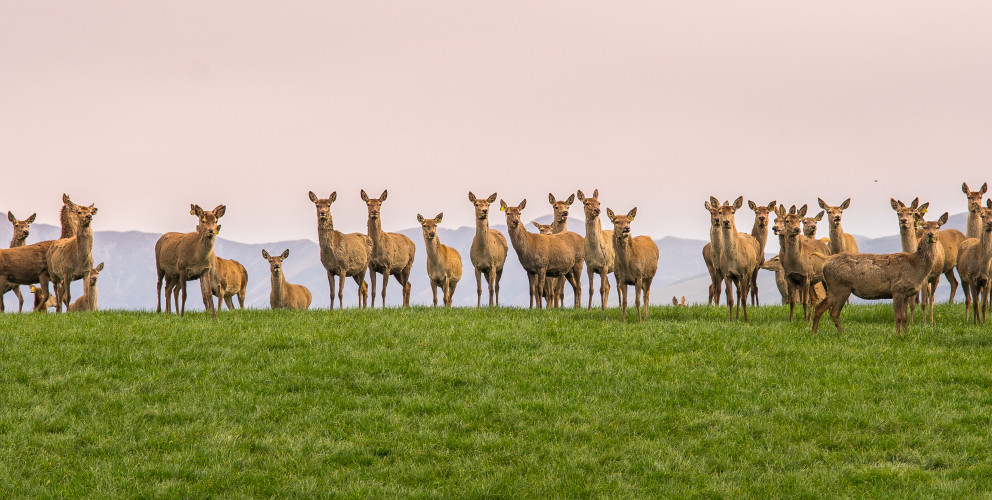Climate change is a global issue affecting all countries.
Greenhouse gases like carbon dioxide, methane, and nitrous oxide are increasing in the atmosphere. This is causing air and ocean temperatures to rise. Over time, higher temperatures can change weather patterns and damage the environment.
New Zealand's economy relies on our environment and the primary production it supports, like farming, forestry, and fishing.
There are risks and opportunities we know New Zealand will face:
- Climate change will affect what and how much New Zealand can grow or harvest, both on land and in the sea.
- Increasingly unpredictable weather could make some years more or less productive than others.
- Some regions will become better suited to growing crops and producing goods than others.
- More rainfall can result in erosion and increased sediment in our waterways. Soil loss can damage the stability of land and reduce its productivity.
- Scientists have found links between changing weather patterns and fish quantities in important commercial fishing stocks. Affected species include snapper, scallops, red cod, hoki, and rock lobster.
- The variety of pests and diseases we are vulnerable to could change.
New Zealand’s unique emissions profile
Greenhouse gases are produced in several ways:
- Carbon dioxide is a long-lived gas. It stays in the atmosphere for hundreds to thousands of years. Carbon dioxide is produced in the extraction, production, and use of fossil fuels like petrol.
- Nitrous oxide is also a long-lived gas. It is produced in farming, from fertiliser and animal urine, and industrial processes.
- Biogenic methane is a short-lived gas. It takes only decades to degrade in the atmosphere. Biogenic methane is produced by farm animals like cattle and sheep, and natural sources like swamps. Climate policy only deals with emissions that are related to human activity, which includes farming.
Agriculture and forestry are important in our role in reducing global greenhouse gas concentrations:
- Agriculture and livestock produce about half of New Zealand's total greenhouse gas emissions – this is unusual for a developed country.
- Our forests store a large quantity of carbon. This prevents carbon from collecting in the atmosphere, reducing our net emissions profile.
Targets
The government has set clear targets for reducing emissions.
In 2019 the Climate Change Response (Zero Carbon) Act passed into law. This set domestic targets for reducing New Zealand’s total greenhouse gas emissions. (These are separate to our international commitments to contribute to global climate change targets through the Paris Agreement.)
Our domestic targets are:
- net zero emissions of all greenhouse gases other than biogenic methane by 2050, and
- 24% to 47% reduction below 2017 levels of biogenic methane emissions by 2050, including a 10% reduction by 2030.
Plans to reduce emissions
New Zealand’s first emissions reduction plan was published in May 2022.
The plan includes a set of key actions to support farmers, growers, and whenua Māori owners to lower agricultural emissions, while continuing to produce high-value, high-quality food and fibres.
This will require a combination of changes to on-farm practices and land use, as well as advancements in research and technology.
Key actions outlined in the ERP include:
- establishing a new Centre for Climate Action on Agricultural Emissions to accelerate new research and development
- supporting producers to make changes on-farm
- developing specialised extension services with a climate and environmental focus
- establishing tikanga-based programmes to support the needs and aspirations of Māori.
Aotearoa New Zealand’s emissions reduction plan
National adaptation plan for climate change
The first national adaptation plan for Aotearoa New Zealand was released in August 2022. It's called Adapt and thrive: Building a climate-resilient New Zealand.
The plan will ensure communities have information and support to prepare for the impacts of climate change.
Aotearoa New Zealand's first national adaptation plan – Ministry for the Environment

